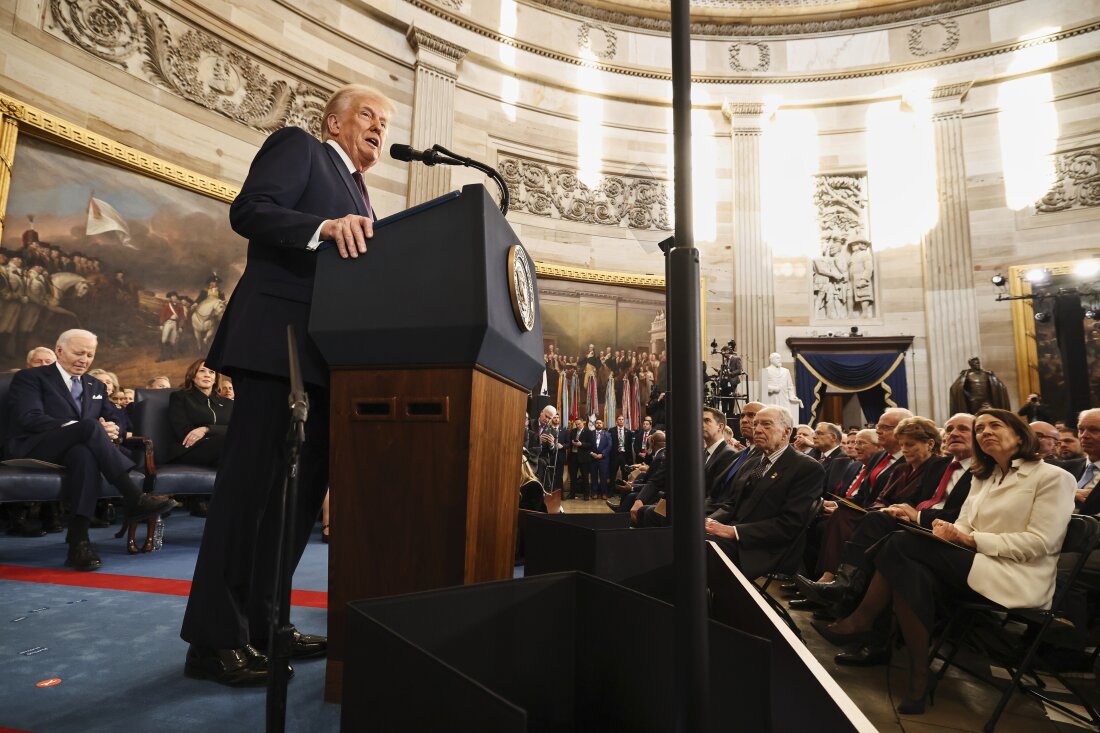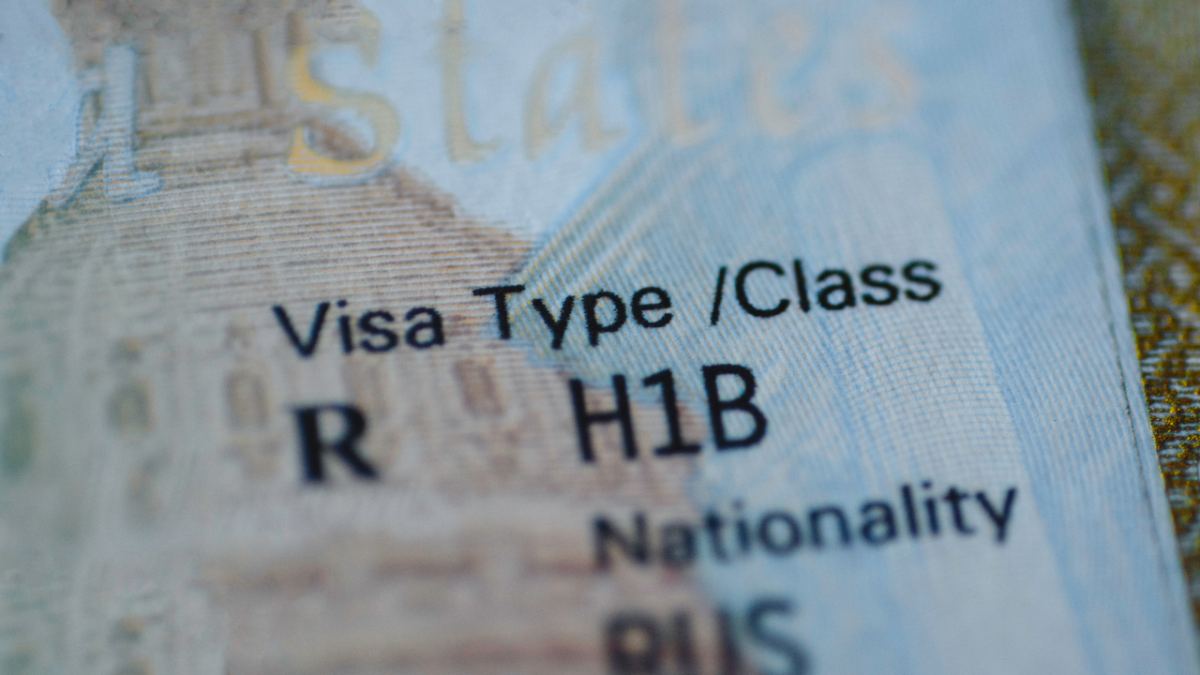This piece was submitted by Niall Twohig. Twohig teaches in the Warren Writing Program. He dedicates this essay to contingent faculty who work magic despite what is stacked against them. He thanks those who keep his magic alive: Lianne, Ma, Mol and Lar, Jay, Jorge, Jeff, Joe, his students and, of course, Aislynn.
As the quarter progresses, and as we tenuously type first words on blank pages, let’s remember their magic. I write that as a reminder to myself as much as you.
I forget the magic of words. I forget the spells cast from sounds formed into shapes that, when combined carefully, reveal something of the world and can change it in the process.
I forget when I read. Whether it’s Thomas Mann’s “The Magic Mountain” or a student essay, I read as I eat most meals. I consume the words while doing other things: answering my daughter’s cry, receiving a friend’s text and ignoring political spam, swiping to a screen that reveals a thing that needs to be bought or an email in need of response. So, when I read, I scan. I skip words. I get the gist so I can move to other tasks. In doing so, whatever magic was there, in the writing, is lost. Any potential spell cast by the writer doesn’t take effect on me, a reader who no longer has conditions to read.
The same can be said of my writing. When it comes to text messages and emails, I find myself relying on memes, emojis, and at most a hastily thumbed reply. My word volume, even to close friends, has shrunk year by year. As has the length of their replies. More importantly the substance seems missing. Gone are the stories we used to share. Gone are the word games we used to play. I haven’t yet reached the point where I let Google’s algorithm reply for me, but I do feel something of that algorithm — its efficient cold logic — has been internalized by me and my closest readers.
* * *
Don’t worry. This isn’t another essay bemoaning technology. What I really want to write about is magic. So let me return to that.
Yes, I forgot the magic of words. But forgetting is a necessary condition for remembering. And the other day, I remembered.
It took a prompt from the directors of my writing program to remind me of that magic. At our orientation, they gave me and my colleagues a worksheet with these directions: “Identify significant moments in your writing/literacy/illiteracy development that have shaped your sense of your writerly identity. They may be positive, negative, or neutral events. Place them along a rough timeline.”
As someone who has a terrible sense of linear time, I envisioned a constellation of bubbles rather than a straight line. The first bubble that rose to the surface read:
Da helping me to spell.
Those five words had a power on me in orientation, just as they do now. They pull me down the tunnel of memory, across time and space, and suddenly I am a boy of seven.
We had immigrated two years before, Ma coming ahead of us from Ireland. She worked a hard, lonely year as a nurse to set up a home for the family: my Da, my brother, my sister, and me. These were lean times, Da out of work and Ma working back-to-back-to-back shifts. I remember their fights, but most of all I remember roaches. Burrowed into everything. In our cabinets, our closets, the little ones in our mattresses. Flicker the lights off, then on, and two dozen would appear.
But now, now I’m in a room with Da. It’s not the roach-infested apartment. It’s a new home that still couldn’t fend off our unhappiness. I’m sitting at Da’s desk, and he is six feet across the room reclined in his small bed.
I’ve been tasked with a report that I can’t complete. You see, I haven’t yet learned how to read or write. At seven, I’m far behind the other kids. Maybe it’s something outside of me that held me up, something about our situation I don’t yet understand. But it’s also something inside: I like looking at clouds pass by the window rather than what teacher writes on the board. I prefer the worlds in my mind rather than the classroom. And, anyway, when it comes to tests, I just copy the squiggles from the other student’s exams. I’ve made an art of it. And Christine Lydon has even shown sympathy. She pushes her exam sheet closer to the edge so I can get a clearer view.
But they’ve caught on, haven’t they? They’ve put me in a remedial class with the other problem children. I saw the “normal” kids look at us with smirks as we were called into Sister Germana’s classroom. She and that room have a reputation. That reputation has now marked us.
The teachers spoke to Ma and Da too. They ordered them to put in extra work. But they’re always so tired, Ma from her nursing and Da, either from counseling addicts coming off the drugs or from the three beers he guzzled before retreating to his room.
He’s tired now, but he’s trying his best to help me while Ma is at work. I’ve told him that I have to write a report on the life of a Saint. We settle on Da’s namesake, Saint Patrick.
Da begins his story, the words float across the room from his mouth to my ear to my hand.
“Patrick was a slave,” he says. He backtracks to the first word. The letters begin their journey now. Letter by letter, he spells his name. Then come the next two simple words. To make sure I’m following, he repeats: “Patrick … was … a … slave. Slave …”
“S”
“L”
“A”
“V”
“E”
“Period. Full Stop.”
My hand moves to catch these letters, arranged in an order that’s new to me.
“Do you know what a slave is, Niall?” These words are spoken in a different tone, more life to them. We pause our work. I shake my head no. Da doesn’t give me a Webster’s definition of the word slave. He paints the picture of a fellow sitting happily in a green field. Suddenly pirates appear, tackle him, drag him aboard their ship. I see Patrick being put in chains. I see him rowing, painfully painfully, with other men across choppy seas.”
I know the word now. I’ll forever know it.
I’ve learned to spell.
We continue. Letter by letter, sentence by sentence, we build my first paragraph. It’s not an official biography. It’s fantastic. Our last line reads, “Patrick drove the snakes from Ireland.”
Da pauses, “But ya know, Niall, I think he forgot to drive out the two-legged snakes!” He chuckles. I ask him if I should include that line in the report and he says, “Ah, God no!”
* * *
Da’s spell worked. Once I saw that the particular arrangement of those squiggles could unlock a whole world, a world where people were chained and where chains were broken, I felt a subtle click. Sound connected with shape and the word was born in my mind.
I began to read those words. When I didn’t know what they meant, I could look up their story in our dictionary. I even began to arrange letters, without Da’s guidance, into words, sentences, paragraphs.
I read voraciously. I looked for more adventures in the lives of Saints but never found stories as exciting as Da’s Saint Patrick. So I moved to adventure stories that stranded me on an island circled by a blood-thirsty shark, that pulled me to the center of the earth, that launched me to space. I devoured them. My teachers told Ma and Da that I was reading above my level. I had outpaced the peers who smirked at me, but I didn’t have time to gloat. I was busy looking for books.
Then, the day when a classmate gave me his copy of “The Hobbit.” He’d burned through it, and I soon saw why. Tolkien’s words enchanted me like no others since Da’s. I didn’t just read that book. I inhabited it. I escaped to cozy nooks in Bilbo’s hobbit hole. I struggled through the tangled trees of Mirkwood. I saw the Lonely Mountain on the horizon. I felt Smaug’s hot breath breathing down the passageway. All of this was brought to life in my mind long before movies and streaming services. All through words!
By high school, my reading taste had shifted to first person stories. They seem like old friends now: the protagonist of Joyce’s “Araby” who in an instant is struck by life’s vanity, Alex from “A Clockwork Orange” who revealed what horrible “cures” modern societies produce, Frank McCourt who used present tense to relive his youth, Maxine Hong Kinston who inhabited myth to reclaim what history erased. The word, I discovered, could reveal the worlds behind one’s eyes. It could bring me into another’s skin, even someone I detested like Nabokov’s Humbert Humbert who lied so beautifully.
* * *
Along the way, the spell was broken. Words lost their magic. It began when I had to write about those beloved books for graded papers and standardized tests. To succeed in those arenas, I had to follow certain rules: Get rid of the I. Write objectively. Cite evidence from experts. Follow this formula to write a good essay, this formula to write a good paragraph, this formula to write a good sentence. All of this molded my words to that uncomfortable shape called “academic writing.”
Writing was no longer a container of life;, words no longer cast a spell. The text, as I soon learned to call it, was now an object to pillage for data. Writing about texts became a mechanical process of extracting, plugging in, churning out data. What I produced — the academic essay — served as a measurement of my ability, its words a marker of my worth or worthlessness. This approach to writing was best summed up to me by a composition professor who once took on extra work grading SAT essays. At the grading center, he encountered a veteran grader who claimed he could pin several essays on the wall, ten feet away from where they stood, and determine their score just from their shape on the page. His eyes had become so attuned to the standardized mold that he no longer needed to see the particular words.
I stuck to academic writing as one might stick to a comatose lover. My commitment brought me to a doctoral program in literature at this university. In my studies, I read texts about that word Da had helped me spell. There was an impenetrability to academic writing on slavery, jargon that would stump folks like Ma and Da, sentence structures that would leave them puzzled. I felt lost myself, as if I was listening to people speak in a club where I didn’t belong. It was different when I read Sojourner Truth and Frederick Douglass. The magic was there (Just read this passage from Truth’s biography to see what I mean). But even when I read their words, I didn’t have time to sit with them. I didn’t have time to let their spell take effect. I only had time to force their words into my essays, to contain them in abstract theories, to seal their magic behind jargon that was legible to institutions never built for such magicians.
I still found glimpses of magic when I crossed paths with professors who cast spells with their words. I think of Page DuBois whose book on slavery showed me that academic writing didn’t have to be impenetrable, that illuminating research questions come from childhood curiosities, that words can honor the lives of subjects historically constructed as objects. Mostly, Page showed me that writing can still be pleasurable in inhospitable contexts.
And with pleasure comes power.
* * *
I could have been born into a different life. I could have been born into a lavish home rather than immigrating to a roach-infested apartment. I could have had parents who valued things over care. I could have always been ahead of the curve. Perhaps then, this essay would have been about learning to spell Master rather than Slave. It would have been about finding a room of my own where I mastered language, a corporation where I mastered nature, a start-up where I mastered some uncommodified realm of life. We are surrounded by such stories. Their magic is strong, their spell deadly.
But I was born to my Ma and Da, a nurse born in a Philippines barrio and an Irish priest who cared for addicts. I am shaped by them and their values, by their family histories, by the histories of their lands. And I’m happy for that. It has given me baggage, certainly. But it has also given me good magic.
Now, as a teacher of “academic” writing, I share that magic with students. I show them they can still work good spells with their words, even in a context where dark magic rules, even in conditions where most readers do not have time to let the spell do its work.
I do it in the way Da taught me in his room decades ago. On the first day of class, I point to the object my students are sitting in. I spell the word:
“D”
“E”
“S”
“K”
That word doesn’t reveal much, I tell students. But a magic combination of words can reveal its deeper story. We could tell a story of the desk’s parts, of the workers who assembled the parts, of the raw materials in the parts, of the workers who mined those materials, of the care-workers behind those who worked parts and materials, of the damaged Earth from which all of this was drawn. Or, our words might speak of two within that chain who stole time to gaze upon the stars or who, despite all that was stacked against them, managed to get their kid to a top-ranked college.
We can use our words to bring back such stories, I tell students. We can share these stories with those willing to sit for a moment and listen. When we do, our readers don’t sit in the same desk. Suddenly, it is imbued with the magic of life. We’ve worked our spell. And when our readers get up from their desks, they’re no longer the same person. They are in-the-world differently.
Your words can do that, I remind students.
My students sit and listen. They then work magic in their writing. Here are some of their spells. Give them time and you’ll be changed.
* * *
Writing can reveal magical patterns that are hidden in plain sight. Writing this essay, for example, has helped me see a circle. To show it, I return to the timeline I put together when prompted by my writing directors. The last bubble in my constellation reads:
Teaching Aislynn how to spell.
Aislynn is my three-and-a-half-year-old daughter. I see my parents in her, my Da’s rascally nature and Ma’s fierce will. I see my wife’s mom who passed away from cancer before we met. She’s in that glimmer of light that I’ve seen in old photographs, in my wife’s eye, and now in our child’s. We meet our ancestors in her too. My wife has seen her maternal grandmother, who she never met, who once stood with the same posture that she and my daughter now find themselves standing in.
And, of course, my wife and I are in her too. For one thing, she loves stories.
So, the other night, her usual bedtime request came: “Tell me a story, Daddy!” (It’s an imperative now, but we’ll work on that.)
Since it’s fresh in my mind, I begin Da’s story of Saint Patrick. I pause on the word Da paused on. “Do you know what that word means, Aislynn?”
“What is it,” she asks in her sing-song voice.
I tell her the story Da told me. I feel the roots of our homeland woven into each syllable. I feel the letters knotting themselves together into words. Though he died three years ago, I feel Da too, woven into these sounds that become words that become stories. It is his story, after all. He wasn’t a slave. But he was compelled from his homeland by a type of economic piracy. He found a way to preach in this land of his captivity. I’d say he even drove out a few snakes.
I don’t teach Aislynn how to spell the word yet. But a spell has been cast. I hope it’s enough to counter the master’s spells.
Da might say, ’Tis. ’Tis indeed.





















Mybest • Nov 17, 2022 at 2:11 pm
As someone who has enjoyed shows like “Young Royals” and books like “Red, White, and Royal Blue. http://mybestcasino.ca/ Best CA Sites for Canadian.
Adam • Nov 3, 2022 at 9:00 am
Any essay is structured. It consists of an introduction, main body and conclusion. There are a lot of cool tips on the internet now on how to do it well. Or just use the help of specialized services like this https://onlinecollegewriting.com/
Junyi Liu • Oct 24, 2022 at 12:19 pm
Simple language is the most moving, the so-called simple is not artificial, not exaggerated. As Gorky said, “The real art of language is always very simple, vivid and picturesque, and almost palpable.”
When it comes to spelling, the letter-by-letter spelling makes me feel that I am a child who is learning to spell. A kind teacher is tirelessly teaching me simple spelling. It is really warm and makes me feel like a spring breeze.
The simple language is not simple, but concise and accurate. There are always many words to express things, but there are not many suitable words to find. This article has achieved this and expressed it with the most suitable and appropriate words. the essence of things.